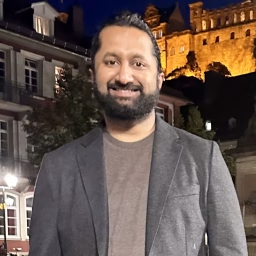February 27
@
4:00 PM
–
5:00 PM
Location TBD
Designing the Next Generation of Computer Systems for Sustainable AI
Speaker’s Abstract:
Abstract: The key technology trend for the next decade is the transformative potential of artificial intelligence (AI), alongside its rapidly growing energy consumption and associated environmental impacts. However, our longstanding focus on energy efficiency alone will not solve the problem, and current computer systems powering AI applications are not designed to optimize carbon efficiency — that is, the amount of work performed per unit of carbon emitted. In this talk, I will present my work on rethinking how we design and operate computer systems for AI to enable carbon-aware optimizations. I will present my work on virtualizing the energy system to provide both visibility into, and software-defined control over, energy systems for computer applications. I will also describe how the proposed abstractions allow a wide range of AI applications to manage the variability of clean energy in software — accommodating diverse user and application requirements, goals, strategies, and tolerances for reducing carbon and energy. I will share my work on uncertainty- aware modeling of lifecycle carbon footprint, which helps stakeholders in computing and AI assess the discernibility of their decisions. Finally, I will outline my vision for enabling sustainable AI capabilities in a rapidly evolving landscape of AI hardware and software, and I will illustrate how these advances can drive broader societal decarbonization.
 Norman Bashir
Norman Bashir
Bio:
Noman Bashir is a Computing & Climate Postdoctoral Impact Fellow at the MIT Computer Science & Artificial Intelligence Laboratory (CSAIL) and the MIT Climate & Sustainability Consortium (MCSC). His research rethinks the design and operation of large-scale computer systems to address emerging challenges, including rapidly rising computing demand, increasing energy constraints, and unintended socio- environmental implications. His work on improving resource utilization — deployed across all Google datacenters — demonstrates significant real-world impact. He earned his Ph.D. from the University of Massachusetts Amherst in 2022.